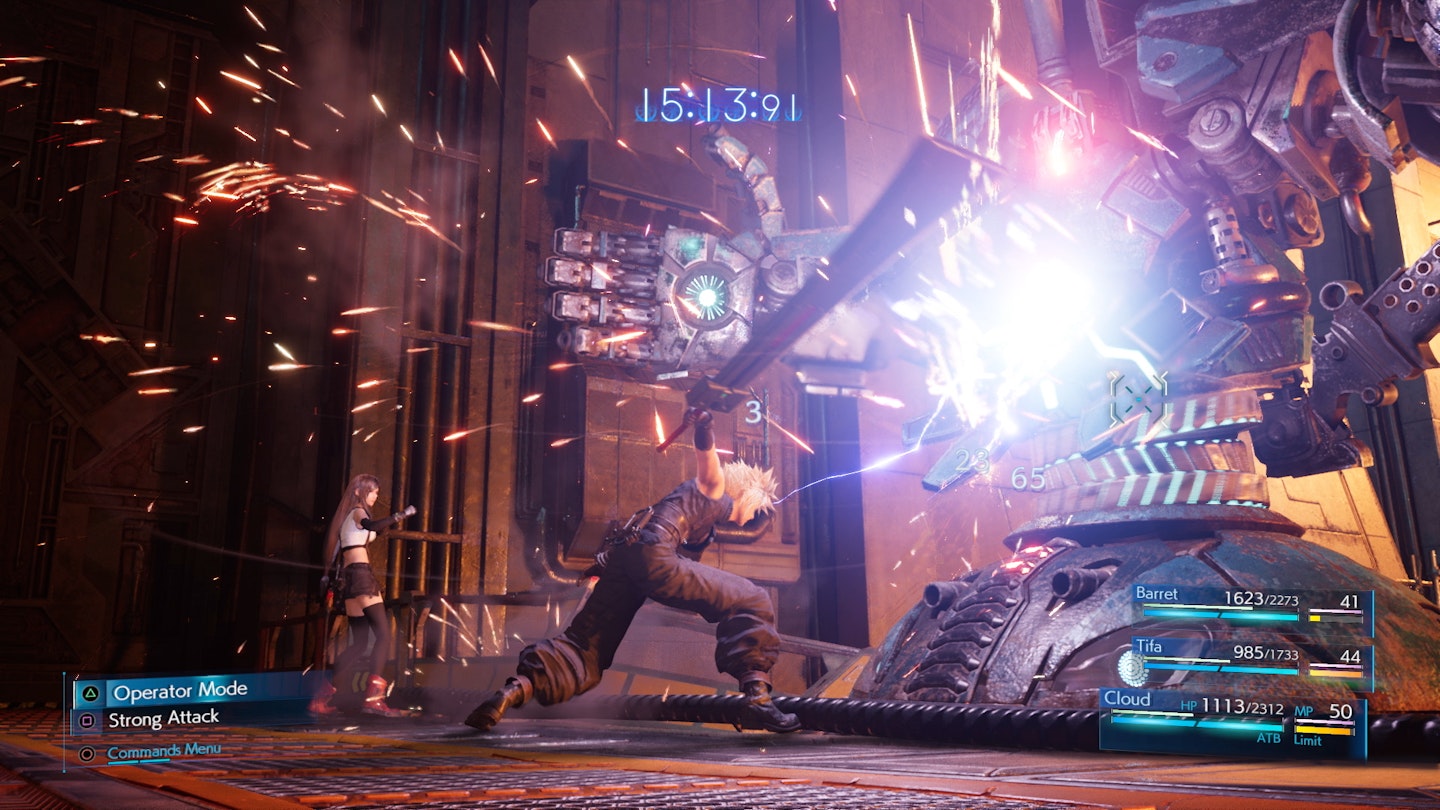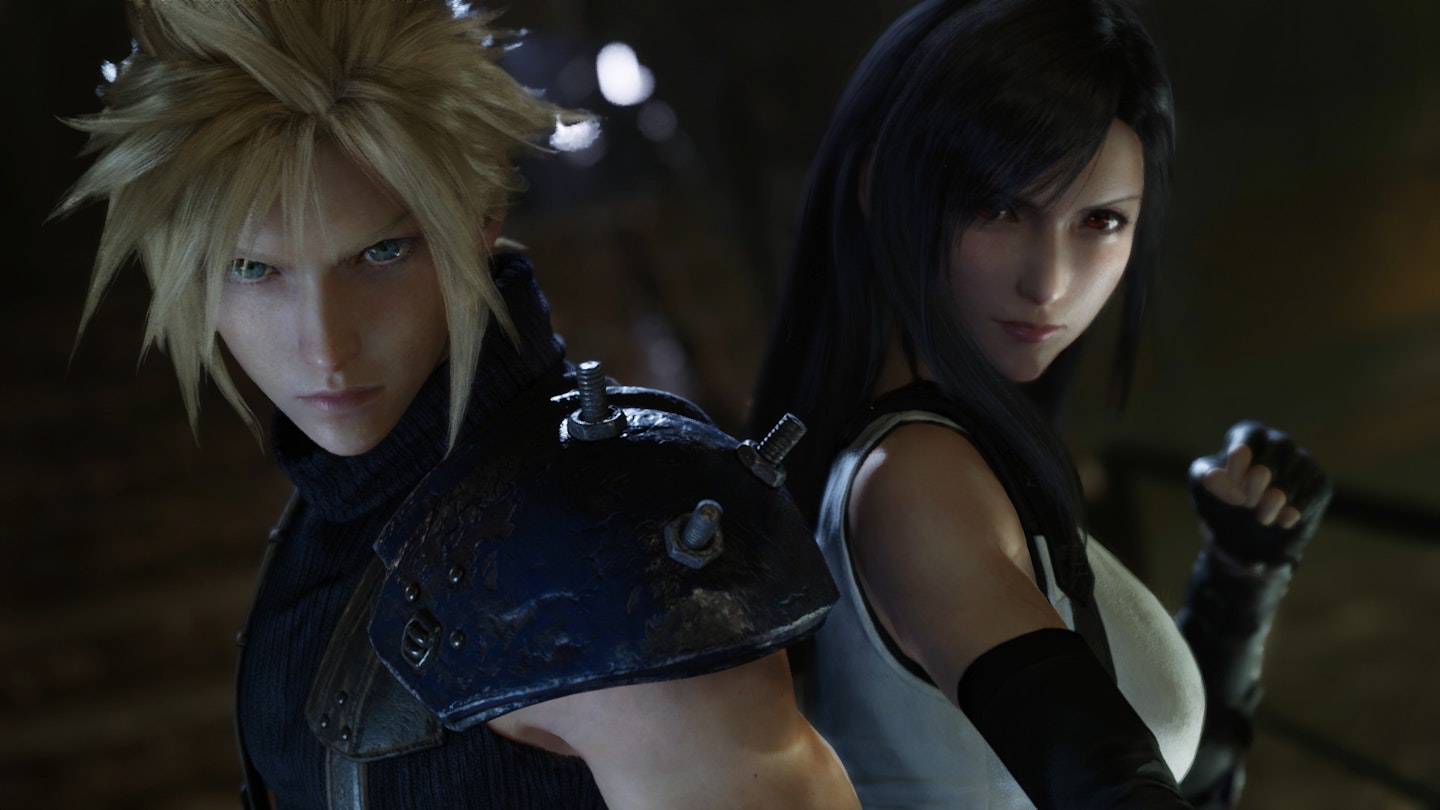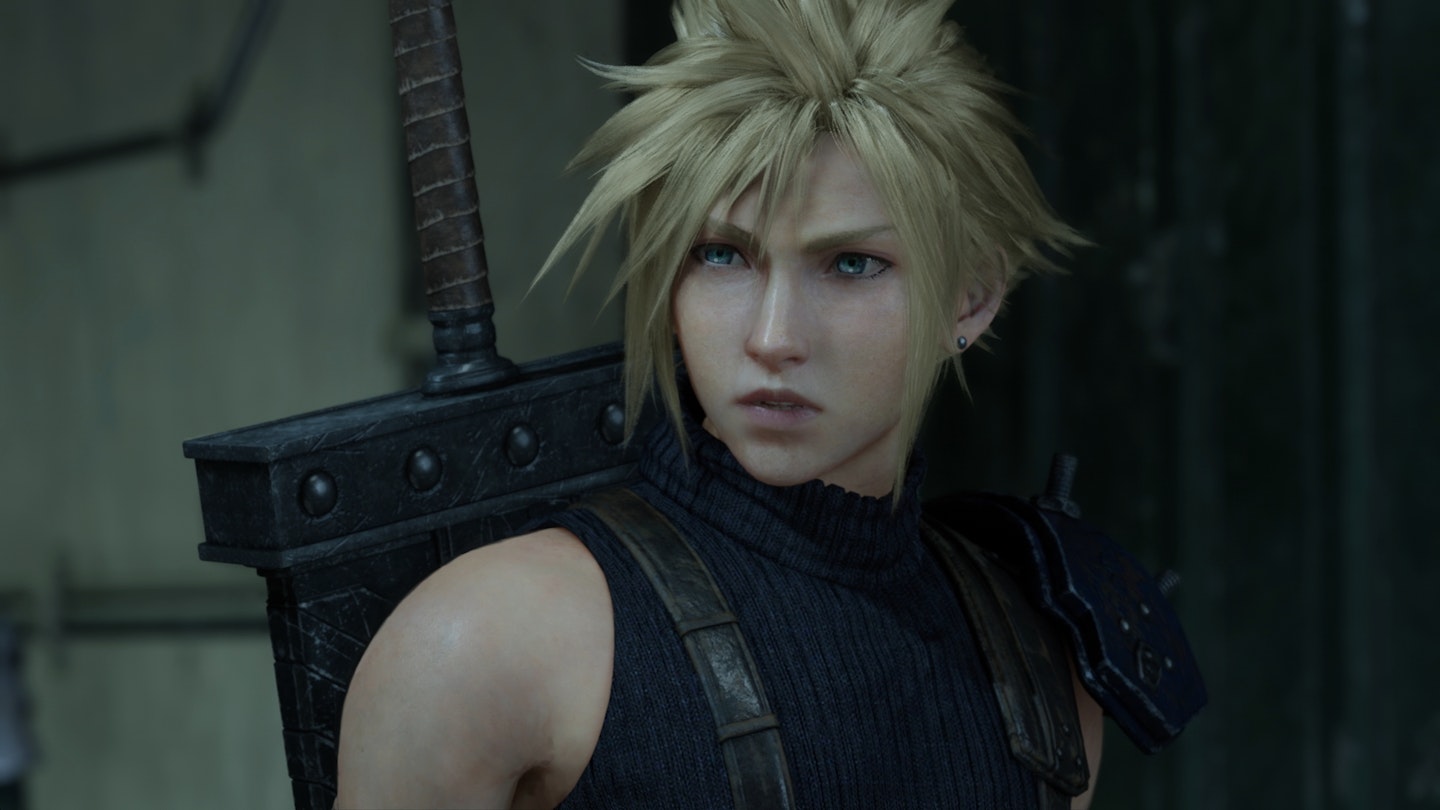The very existence of Final Fantasy VII Remake is a risky proposition for developer Square Enix. Few games have had the pop cultural impact of the original Final Fantasy VII: released on the PS1 back in 1997, it introduced a generation to the Japanese RPG as a genre, while simultaneously elevating said genre to new heights. Its sweeping, ambitious tale of ecological warriors, fractured memories, bizarre experiments, and alien gods left an imprint on players' collective memory, while its emotional core – and one iconic scene in particular – still resonates. Get a remake wrong and a lot of people are going to be very upset.
Thankfully, Remake does not get much wrong at all. It is everything fans of the PS1 classic had hoped – and, for years, begged – for, updating the visuals and mechanics, but without sacrificing the feel or tone of the near-legendary original.

The first of several planned instalments to fully adapt the epic scale of the 1997 game, Remake focuses on the section of the story set in Midgar City. A sprawling megalopolis ruled by the Shinra Electric Power Corporation, Midgar is deeply divided between the rich, who live on the upper strata of the city, and the poor, who live in the polluted slums still on the Earth's surface. Once again taking on the role of mercenary Cloud Strife, players are drawn into a series of ecoterrorist actions against Shinra, which is draining the planet of its very life essence in order to provide energy. While the game's ecological and political messages are even more pertinent now they were more than two decades ago, here Square Enix also delves into how propaganda can turn people against their own interests, with news broadcasts frequently swaying public opinion against Cloud and his allies. Final Fantasy VII was always political, but here it's more scathing in its condemnation.
The biggest change is the shift from static, turn-based battles to a more action-oriented affair. This, more than anything, could have broken the spell, turning Remake into just another hack-and-slash action RPG. Instead, director Tetsuya Nomura has modernised the combat but kept the precision and deliberation of the traditional system. Here, players hammer the square button to build up an "Active Time Bar", then tap cross to slow time to a crawl, affording chance to select abilities, magic, or items from a menu. It's a perfect balance of old and new, and while a "Classic" mode is also included – where characters auto-attack and players only have to make menu selections – it feels staid and frustrating by comparison.

Given Remake only adapts a slice of the original, the playable characters are scaled back to a mere four: Cloud, fighter Tifa, gun-armed Barret, and flower seller-turned-healing mage Aerith – updating the old spelling of "Aeris". Each has their own specialisations in combat, and you can switch between them at any point, allowing you to juggle battles as you switch between up-close attacks from Cloud and Tifa or ranged moves from Barret and Aerith. Despite the truncated line-up – expect the remaining five playable characters to debut as the later Remake chapters arrive – there's plenty of customisation to be found. Weapons unlock new, unique moves, and can be boosted in power, while Materia orbs provide an array of magic, skills, and powerful summons to use in battle.
The new battle system isn’t perfect though. Tapping away at square can lock you into a combo, which is impossible to break to dodge or guard. Combine that with certain enemies with debilitating attacks, and you can be left with no escape from damaging attacks. Normally this isn't too bad, as you can switch to other party members, but on occasion when the plot has you with only one character, it's immensely frustrating. Targeting could also use some improvements – locking on to enemies is all well and good, but when the camera doesn't strictly follow your target, it irritates.
Despite the focus on the Midgar section, Remake still proves itself a sprawling epic. Familiar locations are recreated in rich detail, while new areas of Midgar are visited for the first time, often as the story dramatically expands on the background of supporting characters, fleshing out the world and its inhabitants in the process. It's not open-world though – in fact, Remake is relatively linear, even keeping players from exploring certain areas before it wants you to for much of the game. There are still countless secrets to uncover though, whether tucked away down alleys or unlocked by completing challenges. There's still plenty of the old FF7's delightful weirdness too: boss battles against possessed houses, strange mini games, and the infamous cross-dressing sub-quest – now with a more sensitive and positive spin on it. Despite the spit and polish, it still feels like Final Fantasy VII.
.jpg?auto=format&w=1440&q=80)
What a spit and polish, too – Remake is one of the most breathtakingly realised and staggeringly beautiful games in years. From character models that could just about pass for live action at times, to environments that look almost real, it is an absolute joy to behold. Even the slums that make up much of the early sections of the game are a sight to behold, filled with living detail. Fully voiced characters, down to background figures chattering away in the streets, further bring the world to life – simply wandering around is a treat for the sense.
Sometimes, risks pay off – and despite the gamble that Remake could have sullied the memory of Final Fantasy VII, it has instead enhanced it for those with nostalgic fondness, while proving a spectacular introduction to this mythic world for newcomers. A caveat though: Final Fantasy VII Remake was first announced at E3 2015. It has taken nearly five years to release, and is only the first of an unknown number of games that will re-tell the story in full. Enjoy this instalment for the self-contained near-masterpiece that it is – but don't expect to see the end of the story in this reimagined form for a long while yet.
